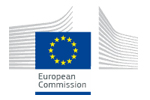Competent and talented researchers are vital for creating a competitive knowledge-based economy and satisfying its requirements. In order to support achieving the target of the European Research Area (ERA) of one million additional research jobs in the EU by 2020, there is an evident need to improve the perception of research careers and promote them in Europe. Besides attracting young people to science and experienced researchers to European research, there is a need to consider unconventional paths in research careers in order to avoid any barriers or obstacles that could impede a researcher in his/her career development. Significant national, institutional and personal investments are put in place to educate and train researchers and these investments are lost if researchers completely abandon research activities. Therefore it is important to gain insights into the needs of and opportunities for dual careers and career restart, as well as to look into different approaches used to address potential challenges in these areas.
The "Research careers in Europe" study has an evaluative character and addresses three topics:
- The perception of research careers in Europe and how to increase their attractiveness;
- How dual careers are currently being dealt within Europe and which measures could be implemented to make progress on this matter;
- The state-of-play of career restart opportunities within Europe and how to improve related strategies to better match the needs of researchers resuming their research career after a break.
The study objectives are (1) to provide an overview of the state-of-play in Europe regarding the issues of career promotion, dual careers and career restart, and (2) to determine how Marie Skłodowska-Curie Actions (MSCA) in particular could contribute to advancing research careers in Europe. Therefore, the study considers four levels of analysis:
- System level: career management policies in the EU Member States and Associated Countries are analysed and benchmarked with those carried out in non-EU countries;
- Programme level: the implementation practice of selected EU MSCAs and their implementation modalities are examined in order to determine how the MSCA programme could contribute to advancing research careers in the three topics areas covered by the research careers study;
- Organisation level: this level considers the management of the research career issues from the standpoint of academic research organisations and research companies;
- Individual level: the study takes into account the motivation of individuals to undertake and manage research careers.
Both quantitative and qualitative methods are applied to cover all these levels of analysis. The quantitative methods include statistical analysis of monitoring data, surveys and statistical analysis of the survey data; the qualitative methods include desk research, content analysis, interviews and case studies.




